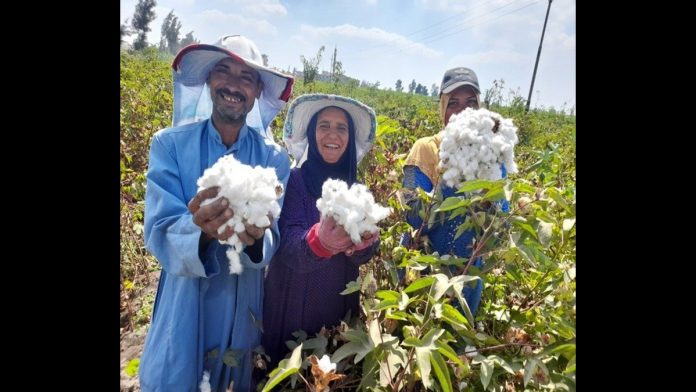News in Brief:
– Egypt establishes fixed cotton prices for the 2024/2025 season, aiming to support farmers with predictable income and encourage continued cotton production.
– This initiative aligns with the government’s broader efforts to bolster the agricultural sector and safeguard farmer interests.
The Egyptian government has implemented a fixed pricing system for cotton purchases during the upcoming 2024/2025 season, according to a news report. This initiative aims to bolster the livelihoods of Egyptian cotton farmers and ensure stability within the cotton industry.
Under the new pricing structure, a quintal (or 100 kilograms) of medium-staple cotton grown in Upper Egypt will be priced at LE 10,000 ($323), while long-staple cotton cultivated in Lower Egypt will fetch LE 12,000 ($388), per quintal.
This guaranteed pricing mechanism is expected to provide farmers with a predictable income and incentivise continued cotton production. The decision aligns with the Egyptian government’s broader strategy to support the agricultural sector and safeguard the interests of farmers.
Historically, production of cotton in Egypt was not commercially viable before the 1800s. However, in the years before the start of the 20th Century, cotton production increased drastically.
Presently, the United States Department of Agriculture (USDA) estimates that the country is witnessing increasing production of cotton, with estimates in the region of 320, 000 bales, as at 2023.
Meanwhile, the government is endeavouring to improve farmers’ well-being and promote sustainable agricultural practices within the cotton industry by offering fair compensation for their crops.
Despite the advantages of fixing prices, it is important to consider that it could have negative consequences if the implementation and enforcement is not done right. For example, Venezuela experienced food shortages due to the government setting prices on essential agricultural products that were below production costs. Farmers were forced to stop producing at loss and black market trade flourished.



